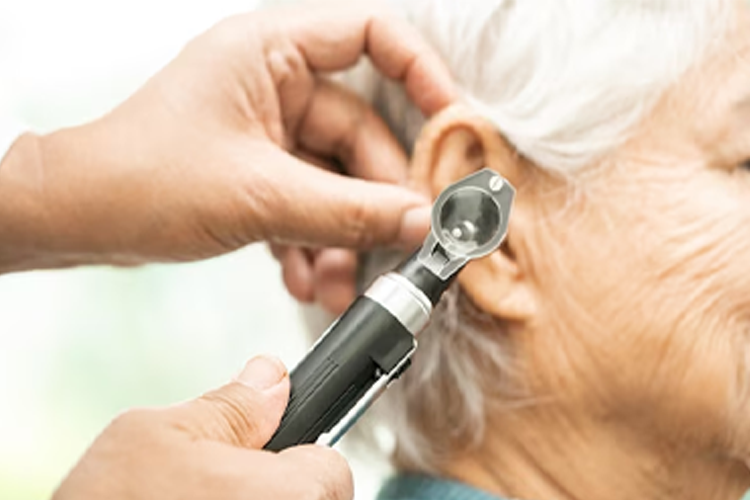
HEARING SCREENING IN ADULTS
Speaking/communication skills are the result of years of practice from birth to young adulthood. The process of language development is influenced by many factors, including; biological factors, cognitive factors, behavioral factors and environmental factors.
The human brain has the ability to convert incoming sound signals into a sensory experience in the form of a hearing process. The brain's ability to give meaning to hearing sensations depends on a collection of codes carried by the auditory pathway to the brain. This collection of codes is then given meaning or understanding to create a listening experience.
To obtain complete information, verbal information must consist of a specific frequency, sufficient loudness and a regular tempo of speech (temporal resolution). This process not only occurs from the hearing organs to the brain, but also from the brain to the hearing organs.
A person needs to have their hearing checked if there are complaints either from that person or from other people (for example family, friends, etc.). Generally, complaints from these people include not being clear when listening and even having difficulty understanding conversations with other people, either in person or over the telephone, for example. On the other hand, those closest to you also realize that there are communication barriers both in daily conversations and at work, so they require a louder volume when speaking.
Decreased hearing ability can be caused by abnormalities that occur in both the outer, middle and inner ear.
• External Ear: Disorders of the external ear can include a buildup of hardened earwax (cerumen) due to changes in the activity of the glands in the ear canal. This needs to be handled well considering that the skin of the ear canal is thinner so it is easily injured when cleaning.
• Middle Ear: The condition of the middle ear can also experience changes, although not very significant, such as thickening of the lining of the eardrum, stiffness of the auditory bones and joints and smaller muscles.
• Inner Ear: Decreased hearing function is most often caused by abnormalities in hair cells in the cochlea, nerve abnormalities, disorders of blood vessels and supporting tissues. Generally this is caused by the degeneration/aging process which causes changes in the structure of the cochlea and auditory nerve in terms of cell number and size.
Age, gender (usually faster in men than women), diet, metabolism, infection, thickening of blood vessel walls, noise, hereditary factors are causes of hearing loss in old age. Generally, hearing loss occurs slowly and initially affects high frequencies and gradually affects other frequencies. Hearing loss usually occurs in both ears simultaneously.
The recommended examination for hearing screening is an ENT examination to assess the condition of the ear. The examination will first look at the condition of the external ear, which must be cleaned before carrying out further examinations. To assess the middle ear, a tympanometry and OAE (Oto Acoustic Emission) examination will be carried out to see the function of the hair cells in the cochlea. Pure tone audiometry examination is carried out to determine the hearing threshold at a specific frequency so that it can be a guide if hearing aids are needed.